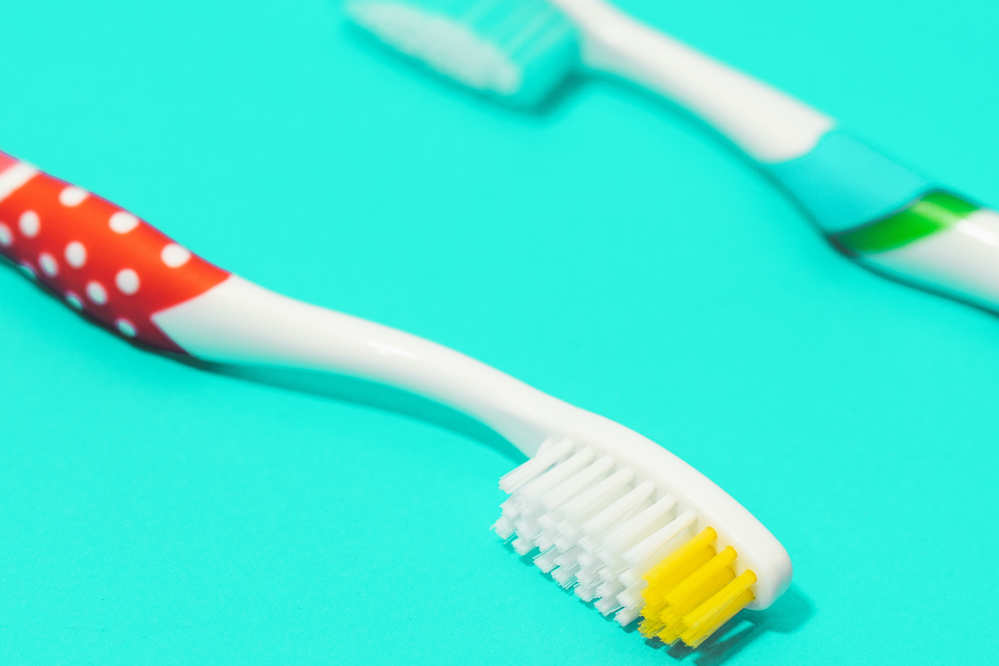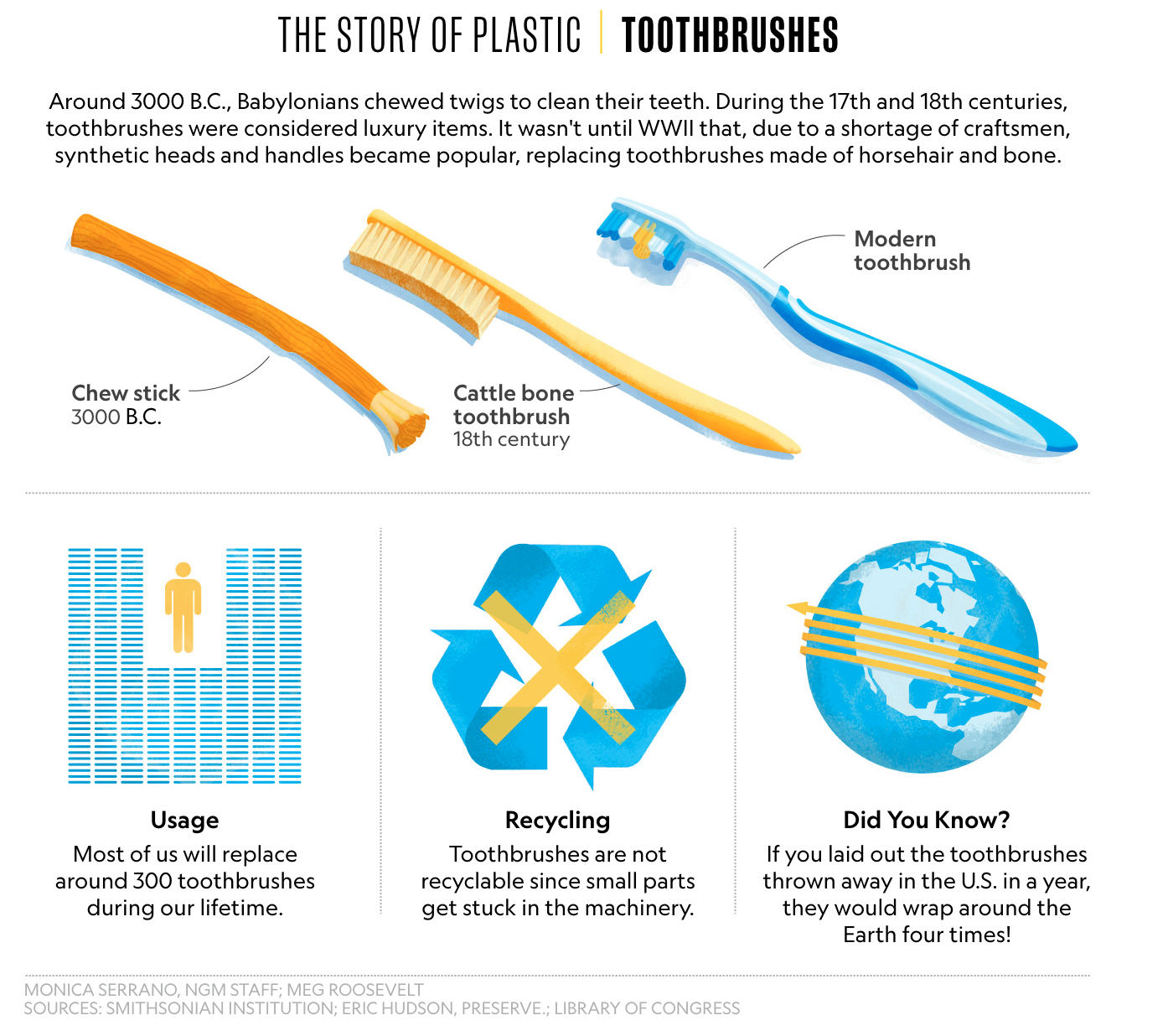This is Part 4 of a 4 part series about everything to do with oral health.
July 14, 2021

Disclaimer: I am not a dentist nor oral hygienist. This 4 part series is for educational purposes only and should not be taken as medical or dental advice. Please always speak with your dentist or prescriber about what is best for your oral or general health.
In the finale of my 4 part series on oral health, I wanted to provide some eco-friendly or zero-waste oral care options for you to consider. I really enjoyed researching this information, and I hope you find it useful! Note, zero waste has no universal definition, but is a philosophy that encourages a lifestyle that ensures as many products and materials are reused, rather than ending up in landfills. The zero waste products mentioned below may still produce some waste, but it is substantially less than conventional oral care products.
Toothpaste
Conventional toothpastes are sold in tubes that are made from a combination of several layers of aluminum, plastics, polymers and resins that cannot be recycled and take more than 500 years to break down. Because these tubes are made with different materials, recycling facilities do not have the ability to separate the different materials from each other. While Colgate has developed a Smile for Good Toothpaste that comes in a recyclable tube, as of this post, this product is only available in Europe.
Secondly, conventional toothpastes often contain ingredients that are harmful to the environment, such as triclosan and sodium lauryl sulfate (SLS). Triclosan forms dioxin when exposed to sunlight in an aqueous environment and forms chloroform when exposed to chlorine in tap water. While SLS may not bioaccumulate in the environment, it is toxic to aquatic organisms as noted in the International Chemical Safety Card (ICSC) Database. Most of us aren't able to squeeze all the toothpaste out of the tube, and this can lead to accumulation of toothpaste in the garbage, landfill, and waterways. Fluoride, while helpful for remineralizing teeth, is toxic in large amounts. For this reason, many of the eco-friendly and zero waste toothpaste options do not contain fluoride due to its potential impact on the environment. However, I was able to find one or two companies that carry fluoridated toothpaste options.
Options to consider:
Toothbrushes
Most conventional toothbrushes have a plastic handle with nylon brushes. According to National Geographic, over 1 billion toothbrushes end up in the landfill every year. Toothbrushes are not recyclable (despite being made of plastic and nylon) because its small parts can get stuck in the machinery, and facilities do not have the ability to separate the different plastics (i.e. bristles from the handles). Most "eco-friendly" or "zero waste" toothbrushes are now made with bamboo [compostable] handles, but most still use nylon for its bristles. Again, nylon is not biodegradable nor compostable. Thus, you need to remove the bristles from your zero-waste toothbrushes when composting the bamboo handle.
Plastic has so fully infiltrated toothbrush design that it’s nearly impossible to clean our teeth without touching a polymer. And because plastic is essentially indestructible, that means nearly every single toothbrush made since the 1930s is still out there in the world somewhere, living on as a piece of trash.

Options to consider:
Note: In Toronto, bamboo toothbrushes must be placed in the Garbage Bin, as the City of Toronto does not accept this item in its Blue Bin Recycling or Green Bin Organics programs, even if it is labelled “recyclable”, “compostable” or "biodegradable".
Dental Floss
Conventional dental floss is almost always made of nylon (a type of plastic) that is waxed or unwaxed. Nylon is derived from crude oil (non-renewable resource) and may take many years to "break down" into micro- and nano- plastics. I could not find any studies comparing zero waste dental floss to conventional floss, but I suspect it's more the act of flossing than the material itself that is more important. Flossing is an important part of oral care, as diligent brushing is not able to get in between your teeth; it should not be neglected! None of the ones mentioned here contain fluoride, so if you need fluoride on your floss, try to choose one with less plastic or more eco-friendly packaging.
Options that I've found:
So, what do you do when you still have some conventional oral care products in your home? Knowing what we know about recycling and waste management, Terracycle Canada has a Zero Waste Box which you can purchase to recycle any brand of oral care waste. This includes toothbrushes, floss containers, toothpaste tubes and caps, etc. Currently, the small box (10''x10''x18'') is $138.00. In the US, Terracycle has a large variety of different Zero Waste Boxes to choose from.
The eco-friendly and zero-waste market is growing at a very fast pace due to increased awareness and customer demand. The ones I listed above are just a small sampling of what's available on the market. Try to choose products that are local, so that it doesn't have to travel halfway across the world to get to you (thus reducing carbon footprint and emissions).
Enjoyed this post? Please check out the rest of my blog posts and be sure to subscribe for the latest updates!
Note: this post and website receives commissions on purchases made through the Amazon Affiliate Program. This means that a commission is paid to me at no additional cost to you when you make a purchase by clicking any or all of the above links through Amazon.
Copyright © 2021 JCL Wellness.
All rights reserved.